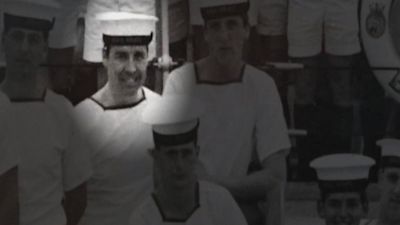Dismissed LGBT veterans can apply to reclaim confiscated medals thanks to Southampton veteran

Watch a report by Rachel Hepworth
Former military members who were dismissed from service because of their sexuality are now able to reclaim lost medals.
The Ministry of Defence (MoD) said it wanted to address a “historical wrong” with the launch of the scheme.
Gay people were not allowed to serve in the military until a rule change in 2000.
A statement on the GOV.UK website says: “Prior to 2000, a number of armed forces personnel were discharged from service on the basis of their sexuality. Some received convictions under specified legislation for homosexual behaviour that has now been de-criminalised, while others were discharged solely on the basis of their sexuality, without any conviction."
Under the scheme, affected former personnel can apply to have their case reviewed by the defence council, with successful applicants receiving a new medal from the MoD’s Medal Office.
Relatives of affected ex-military members who have since died are also able to apply for a review.
The move comes after Falklands veteran, Joe Ousalice, successfully took the MoD to court to have his medal returned after claiming he was forced to leave the Royal Navy because of his sexuality.
The 70-year-old from Southampton had his medal for long service and good conduct confiscated when he was discharged after revealing his bisexuality before a court martial in 1993.
Mr Ousalice, who had an 18-year naval career, is a former radio operator who served in the Falklands War and the Middle East, as well as six tours of Northern Ireland. He still remembers the shock he felt when the medal was cut from his uniform.
The military did finally apologise to Mr Ousalice, admitting that he was treated in a way that would not be acceptable today. He was re-awarded the medal in a special ceremony in Portsmouth last year.
The campaign group ‘Fighting with Pride’ says the consequences of losing their medals and jobs in the armed services has had a negative impact on the mental health of those affected.
The organisation’s Joint Chief Executive, Caroline Paige, said it is engaging with mental heath trusts to help them understand the journey that the veterans concerned have been through.
The Minister for Defence People and Veterans, Johnny Mercer MP, has thanked the veterans involved for their service - and said that he was sorry for what had happened to them.
However, for Mr Ousalice, much of the pain and hurt has come from the poverty that he and others were forced into. He and campaign groups are calling for practical action.